Stars Of Chaos 杀破狼 Vol 1, Notes 7
Stars of Chaos 杀破狼 Vol 1, Notes 7
By Priest, English translation by 7 Seas
Pages 415 - end. (Last 3 little notes!)

Last two under the cut.

殃及池鱼 is the idiom she’s building on. Priest is so funny.

皇叔 = 😁😍🥰。
王国舅 = …well, he’s not Gu Yun.
Stars of Chaos - All The Notes List
All The Seven Seas Books Masterlist
More Posts from Weishenmewwx and Others


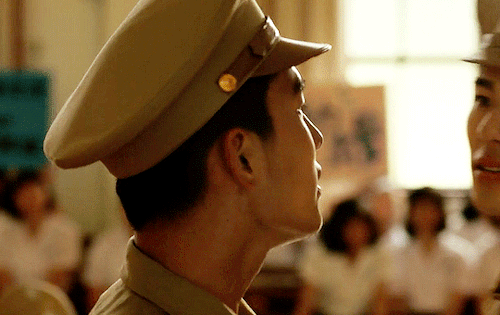

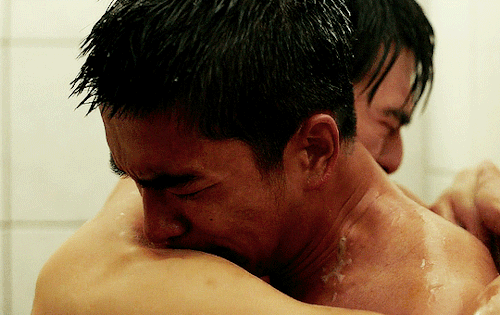
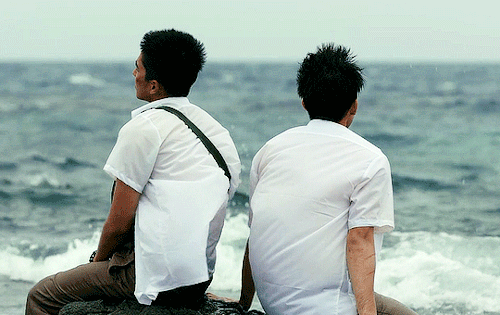

YOUR NAME ENGRAVED HEREIN (2020)
Do you think the world has changed?
My Danmei 耽美 Literary Adventure
Seven Seas Chinese Danmei novels, Notes Masterlist
Some of my favorite books, especially, The Grandmaster of Demonic Cultivation, The Husky and His White Cat Shizun, Stars of Chaos, and Guardian, are now officially in English! Thank you, Seven Seas.
These notes are here to help friends who may not speak Chinese or have enough Chinese cultural background to understand the nuances presented in these works, or are just getting confused with all the different terms of address.
Please forgive me if I have missed anything, and dm or comment if you have anything to add!
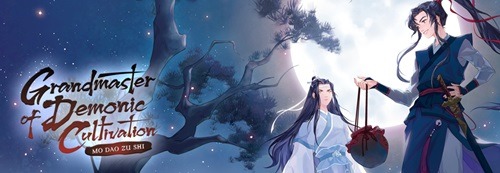
魔道祖师 Grandmaster of Demonic Cultivation
by MXTX

二哈和他的白猫师尊 The Husky and His White Cat ShiZun
by Meatbun 肉包不吃肉 (Rou Bao Bu Chi Rou)
Usage of the word "Master" vs "Teacher"
How to pronounce people's names (bc it does NOT follow the rules of English pronunciation)
Book Annotations
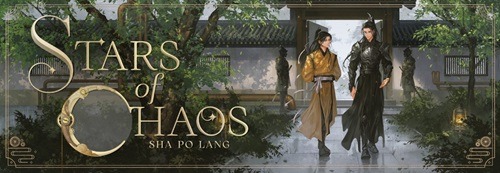
杀破狼 Stars of Chaos
by Priest
Vol 1-4 are here!
(Volume 5 notes will arrive next.)

镇魂 Guardian
by Priest
Coming eventually :)
Article on Fan Culture in China

This newly published Vox article is one of the most accessible, most comprehensive overviews I've seen on fandom culture and the increasing government restrictions in China.
Will be of particular interest to new fans who are still trying to get their heads around these concepts, but also worth reading for those who are more familiar with these topics.
Yelling about this again since it's a big pet peeve of mine but please be aware!!! that "kill the wolf" is not!! a valid translation of Sha Po Lang!! it's not even a "literal translation" it's just MTL gibberish trying to make sense of a term with no English translation
pasting the explanation I gave on twt below the cut-
杀破狼/sha po lang corresponds to three different stars 七杀/qi sha ('seven killings'), 破军/po jun ('vanquisher of armies'), and 贪狼/tan lang ('greedy wolf'), which are significant in a system of Chinese astrology called 紫微斗数/zi wei dou shu
when these three stars appear in certain positions in a natal star chart, they compose the 'sha po lang' star formation, which foretells change and revolution, a turbulent fate which could lead to one making a name for oneself in chaotic times, or ending up destitute
famous generals are often born under this star formation as well - as you can see, there are a lot of ties with the themes of the novel itself
but, however, it doesn't really have a proper english translation, hence why i'm in favor of the 'stars of chaos' version of the title
if you want to look at the actual stars (look closer at the vol 1 cover for a little easter egg!)
qi sha = polis/mu sagittarii
po jun = alkaid/eta ursae majoris
tan lang = dubhe/alpha ursae majoris
thank you minirant complete

My books arrived from Taiwan. I’m going to start my Traditional Characters, top-to-bottom, right-to-left re-read from the inn in YunPing (where the bookmark is).
!!!!!!!!!!!!!!!!!!!!!!!!!!!!!!!
😁
Another new favorite quote:
那么一个人要如何能不吃苦又有出息呢?
So, how can a person not endure suffering but still make great progress in life?
(A young adult tries to figure out how to best raise a young adolescent whom he cares about very much.)
From ch 18 of “Stars of Chaos: Sha Po Lang” by Priest (which is going to be released in English this summer 2023!!)
Wherein we have a meltdown over just how filthy of a mouth Zhao Yunlan has in the Guardian webnovel, so like, reader beware I guess.
Moggiesandtea: I’m gonna be curious to see what ZYL calls Shen Wei after they’ve hooked up, since he’s been calling him his wife and variants thereof for 70 some chapters
Keep reading











Concept arts and sample insert illustrations by Marina Privalova (@Baoshan_Karo) for Sha Po Lang Russian Edition of the book shared by Istari Comics Publishing.
If you haven't seen the beautiful cover arts, here's the link.
Yes, the same artist behind MDZS insert illustrations for EN and RUS license.
Stars of Chaos 杀破狼 Vol 1, Notes 4
By Priest. Translated into English by 7 Seas.
My notes, pages 203 - 245.
Cultural notes, mostly, and a little commentary:

It’s slightly more derogatory in Chinese. The original is “…都不知道‘放虎归山’四个字怎么写。” which translates slightly more literally as “….but none know how to write ‘allow a tiger to return to the mountains’”
More under the cut.

It’s actually a really big deal that Gu Yun, this crass brawny military brat (commander), actually has excellent calligraphy, so excellent that people sell reproductions of it for children to learn from and the emperor himself wants Gu Yun’s calligraphy in the palace.
From asiasociety.org: In China, from a very early period, calligraphy was considered not just a form of decorative art; rather, it was viewed as the supreme visual art form, was more valued than painting and sculpture, and ranked alongside poetry as a means of self-expression and cultivation.
It’s a big deal. Gu Yun’s calligraphy shows that he’s an exceptional scholar and a good person.

滚 also means “boil” (boiling, roiling water) and “somersault / roll.”
I’m actually super ignorant of Chinese curse words. They all sound like nice normal words to me: your mom, somersault, ghost, death. I just yell 鬼!(ghost / monster) a lot when I’m grumpy.

Baby peacock! So cute!

Gu Yun may be crude, but he’s never sloppy.

More idioms. 天马行空 is one of my favorites. You can practically see the Heavenly Steed dancing and soaring from cloud to cloud, totally ignoring the Celestial Horse Keeper desperately trying to get it back into the paddock.

I wish we had more Cao Niangzi!


Shen Yi is actually a kind of superhero, developed from decades of dealing with Gu Yun and having to fulfill all of Gu Yun’s flippant (but totally deadly consequential) promises.

Sigh. No more hot nights out on the town for Gu Yun.
Stars of Chaos - All The Notes List
All The Seven Seas Books Masterlist
Still trying to figure out why I like this look so much…
Would you be willing to talk about how standards of masculinity and femininity in Asia differ from those in Europe/North America? I know, it's a ridiculously broad question but I think you mentioned it in passing previously and I would be really interested in your answer especially in the context of the music industry and idols. I (European) sometimes see male Asian idols as quite feminine (in appearance, maybe?) even if they publicly talk about typically masculine hobbies of theirs.
Hi Anon,
Sorry that it took me over a month to get to this question, but the sheer volume of research that is necessary to actually answer this is significant, as there is an enormous body of work in gender studies. There are academics who have staked their entire careers in this field of research, much of which isn’t actually transnational, being that regional gender studies alone is already an incredibly enormous field.
As such, in no way can I say that I’ve been able to delve into even 1% of all the research that is out there to properly address this question. While I can talk about gender issues in the United States, and gender issues that deal with Asian American identity, I am not an expert in transnational gender studies between Asia and Europe. That being said, I’ll do my best to answer what I can.
When we consider the concept of “masculinity” and “femininity,” we must first begin with the fundamental understanding that gender is both a construct and a performance. The myth of gender essentialism and of gender as a binary is a product of patriarchy and compulsory heterosexuality in each culture where it emerges.
What you must remember when you talk about gendered concepts such as “masculinity” and “femininity” is that there is no universal idea of “masculinity” or “femininity” that speaks across time and nation and culture. Even within specific regions, such as Asia, not only does each country have its own understanding of gender and national signifiers and norms that defines “femininity” or “masculinity,” but even within the borders of the nation-state itself, we can find significantly different discourses on femininity and masculinity that sometimes are in direct opposition with one another.
If we talk about the United States, for example, can we really say that there is a universal American idea of “masculinity” or “femininity”? How do we define a man, if what we understand to be a man is just a body that performs gender? What kind of signifiers are needed for such a performance? Is it Chris Evan’s Captain America? Or is it Chris Hemsworth’s Thor? What about Robert Downey Jr.’s Tony Stark? Do these characters form a single, cohesive idea of masculinity?
What about Ezra Miller’s Barry Allen? Miller is nonbinary - does their superhero status make them more masculine? Or are they less “masculine” because they are nonbinary?

Judith Butler tells us in Gender Trouble (1990) and Bodies That Matter: On the Discursive Limits of “Sex” (1993) that what we call gender is inherently a discursive performance of specific signifiers and behaviors that were assigned to the gender binary and enforced by compulsory heterosexuality. She writes:
Insofar as heterosexual gender norms produce inapproximate ideals, heterosexuality can be said to operate through the regulated production of hyperbolic versions of “man” and “woman.” These are for the most part compulsory performances, ones which none of us choose, but which each of us is forced to negotiate. (1993: 237)
Because gender norms vary regionally, there are no stable norms that coalesce into the idea of a single, universal American “masculinity.” What I mean by this is that your idea of what reads as “masculine” might not be what I personally consider to be “masculine,” as someone who grew up in a very left-leaning liberal cosmopolitan area of the United States.
What I am saying is this: Anon, I think you should consider challenging your idea of gender, because it sounds to me like you have a very regionally locked conception of the gender binary that informs your understanding of “masculinity” and femininity” - an understanding that simply does not exist in Asia, where there is not one, but many different forms of masculinity.
China, Japan, and South Korea all have significant cultural differences and understandings of gender, which has a direct relationship with one’s national and cultural identity.
Japan, for example, might consider an idol who has long, layered hair and a thin body to be the ideal for idol masculinity, but would not consider an idol to be representative of “real” Japanese masculinity, which is epitomized by the Japanese salaryman.

South Korea, however, has a very specific idea of what idol masculinity must look like - simultaneously hypermasculine (i.e. extremely muscular, chiseled body) and “feminine” (i.e. makeup and dyed hair, extravagant clothing with a soft, beautiful face.) But South Korea also presents us with a more “standardized” idea of masculinity that offers an alternative to the “flowerboy” masculinity performed by idols, when we consider actors such as Hyun Bin and Lee Min-ho.

China is a little more complex. In order to understand Chinese masculinity, we must first understand that prior to the Hallyu wave, the idea of the perfect Chinese man was defined by three qualities: 高富帅 (gaofushuai) tall, moneyed, and handsome - largely due to the emergence of the Chinese metrosexual.
According to Kam Louie:
[The] Chinese metrosexual, though urbanized, is quite different from his Western counterpart. There are several translations of the term in Chinese, two of the most common and standard being “bailing li'nan” 白领丽男 and “dushili'nan” 都市丽男,literally “white-collar beautiful man” and “city beautiful man.” The notion of “beautiful man” (li-nan) refers to one who looks after his appearance and has healthy habits and all of the qualities usually attributed to the metrosexual; these are also the attributes of the reconstituted “cool” salaryman in Japan, men who have abandoned the “salaryman warrior” image and imbibed recent transnational corporate ideologies and practices.
[...]
In fact, the concept of the metrosexual by its very nature defines a masculinity ideal that can only be attained by the moneyed classes. While it can be said to be a “softer” image than the macho male, it nevertheless encompasses a very “hard” and competitive core, one that is more aligned with the traditional “wen” part of the wen-wu dyad that I put forward as a conventional Chinese ideal and the “salaryman warrior” icon in Japan. Unsurprisingly, both metrosexuality and wen-wu masculinity are created and embraced by men who are “winners” in the patriarchal framework.
The wen-wu 文武 (cultural attainment – martial valor) dyad that Louie refers to is the idea that Chinese masculinity was traditionally shaped by “a dichotomy between cultural and martial accomplishments” and is not only an ideal that has defined Chinese masculinity throughout history, but is also a uniquely Chinese phenomenon.
When the Hallyu wave swept through China, in an effort to capture and maximize success in the Chinese market, South Korean idol companies recruited Chinese idols and mixed them into their groups. Idols such as Kris Wu, Han Geng, Jackson Wang, and Wang Yibo are just a few such idols whose masculinities were redefined by the Kpop idol ideal.

Once that crossover occurred, China’s idol image shifted towards the example South Korea set, with one caveat: such an example can only exist on stage, in music videos, and other “idol” products. Indeed, if we look at any brand campaigns featuring Wang Yibo, his image is decisively more metrosexual than idol; he is usually shot bare-faced and clean-cut, without the “idol” aesthetics that dominate his identity as Idol Wang Yibo. But, this meterosexual image, despite being the epitome of Chinese idealized masculinity, would still be viewed as more “feminine” when viewed by a North American gaze. (It is important to note that this gaze is uniquely North American, because meterosexual masculinity is actually also a European ideal!)

The North American gaze has been trained to view alternate forms of masculinity as non-masculine. We are inundated by countless images of hypermasculinity and hypersexual femininity in the media, which shapes our cultural consciousness and understanding of gender and sexuality and unattainable ideals.
It is important to be aware that these ideals are culturally and regionally codified and are not universal. It is also important to challenge these ideals, as you must ask yourself: why is it an ideal? Why must masculinity be defined in such a way in North America? Why does the North American gaze view an Asian male idol and immediately read femininity in his bodily performance? What does that say about your North American cultural consciousness and understanding of gender?
I encourage you to challenge these ideas, Anon.
“Always already a cultural sign, the body sets limits to the imaginary meanings that it occasions, but is never free of imaginary construction.” - Judith Butler
Works Cited
Butler, Judith. Gender Trouble. New York, NY, Routledge, 1990. Butler, Judith. Bodies That Matter: On the Discursive Limits of Sex. New York, NY, Routledge, 1993. Flowerboys and the appeal of 'soft masculinity' in South Korea. BBC, 2018, Louie, Kam. “Popular Culture and Masculinity Ideals in East Asia, with Special Reference to China.” The Journal of Asian Studies, Volume 71, Issue 4, November 2012 , pp. 929 - 943 Louie, Kam. Chinese, Japanese, and Global Masculine Identities. New York, NY, Routledge, 2003.
-
 korol--reznii liked this · 9 months ago
korol--reznii liked this · 9 months ago -
 oa-trance liked this · 1 year ago
oa-trance liked this · 1 year ago -
 noisymuffin liked this · 1 year ago
noisymuffin liked this · 1 year ago -
 dumb-airplane liked this · 1 year ago
dumb-airplane liked this · 1 year ago -
 cloudnine12 liked this · 1 year ago
cloudnine12 liked this · 1 year ago -
 dragonsandphoenix liked this · 1 year ago
dragonsandphoenix liked this · 1 year ago -
 heishui-hexuan liked this · 1 year ago
heishui-hexuan liked this · 1 year ago -
 venusxback liked this · 1 year ago
venusxback liked this · 1 year ago -
 marquismelkirian liked this · 1 year ago
marquismelkirian liked this · 1 year ago -
 puq1-shrine liked this · 1 year ago
puq1-shrine liked this · 1 year ago -
 optimnihilist liked this · 1 year ago
optimnihilist liked this · 1 year ago -
 kellyqute liked this · 1 year ago
kellyqute liked this · 1 year ago -
 weishenmewwx reblogged this · 1 year ago
weishenmewwx reblogged this · 1 year ago
